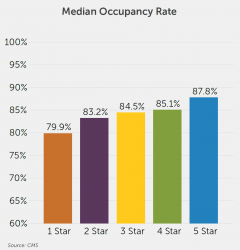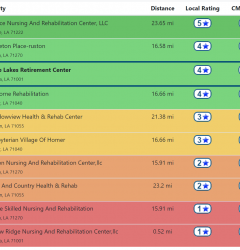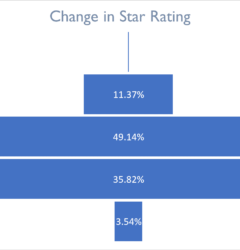CMS compliance with new staffing regulations
- By Clay Hart
Tracking Nursing Home Staffing Data: How CMS Monitors Compliance with New Staffing Regulations
The Centers for Medicare & Medicaid Services (CMS) plays a pivotal role in overseeing the quality of care in nursing homes across the United States. Given the recent introduction of new minimum staffing regulations, CMS has ramped up its data tracking and monitoring efforts to ensure compliance in an effort to promote higher standards of care. This blog explores how CMS tracks data related to these regulations and the impact this has on collecting data from nursing homes.
The Importance of Data in Nursing Home Regulation
In the realm of healthcare, especially in settings like nursing homes, data submissions by skilled nursing facilities are routinely required by CMS for tracking quality of care. The data collected by CMS covers a wide range of metrics, including staffing levels, patient outcomes, and the incidence of care-related complications. These metrics are essential for enforcing new regulations that mandate minimum staffing levels and are intended to ensure that residents receive timely, high-quality care.
Methods of Data Collection
CMS employs several methods of collecting and reviewing staffing data from nursing homes:
Staffing Data Submission: Under the new regulations, nursing homes are required to submit detailed reports on staffing levels, including the number of staff working at any given time and their qualifications. This data is typically provided through the payroll-based journal (PBJ) system, which allows CMS to assess whether facilities are meeting the mandated staffing minimums. This is the automated method of collecting staffing data on all skilled nursing homes.
Regular Inspections and Surveys: CMS conducts health inspection surveys at nursing homes. These on-site inspections include reviewing actual staffing levels as well as assessing the quality of care provided and the overall living conditions within the facility.
Resident and Family Feedback: CMS collects feedback from residents and their families through surveys and direct feedback mechanisms. These officially filed complaints provide added insights into how staffing levels affect resident satisfaction and care quality.
Data Utilization
Once all of this information is collected, it serves multiple purposes:
- Monitoring Compliance: CMS uses the data to monitor compliance with staffing regulations. Facilities that fail to meet the minimum standards can be subject to penalties, including fines and restrictions on new admissions.
- Quality Improvement Initiatives: Data on staffing and resident outcomes helps CMS identify areas where nursing homes need improvement. CMS may offer targeted support and resources to help facilities meet quality standards.
- Public Reporting: CMS publishes staffing performance data on its Nursing Home Compare website, which provides transparency and helps the public make informed decisions about nursing home care. This public accountability motivates facilities to maintain or improve standards to attract and retain residents.
Challenges and Future Directions
While CMS has enacted regulations on staffing minimums to further increase the oversight of nursing homes, it is not without challenges. The accuracy of self-reported data can be an issue given the complexity of submission requirements and the ongoing workforce crisis in the healthcare sector. This makes it difficult for some facilities to properly report and meet staffing requirements.
To address these challenges, CMS is exploring the use of more advanced data analytics and machine learning to better analyze trends and predict which facilities are at risk of non-compliance. Additionally, efforts to streamline data collection and increase the frequency of reporting are expected to enhance the effectiveness of monitoring and enforcement actions.
Conclusion
CMS is scrutinizing data on nursing homes in order to enforce new staffing regulations and improve the quality of care. By leveraging technology and comprehensive data collection methods, CMS can better assess which nursing homes are providing safe and effective care to their residents. As the system evolves, CMS will continue to adapt and use more data driven insights to ensure that nursing homes are places of care and dignity.
Related Posts
Stay In Touch
Sign up for our newsletter to get the latest updates, insights and analysis from the StarPRO team


